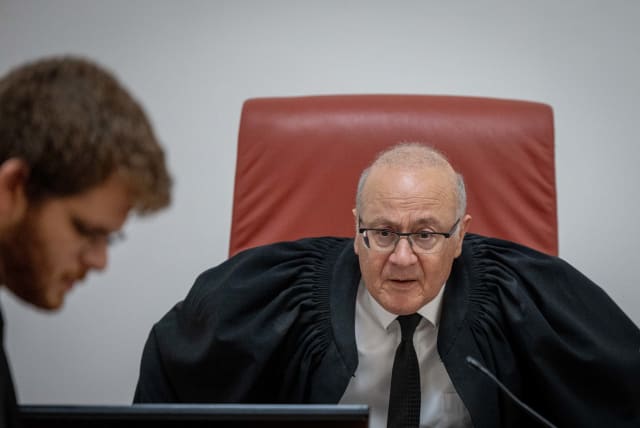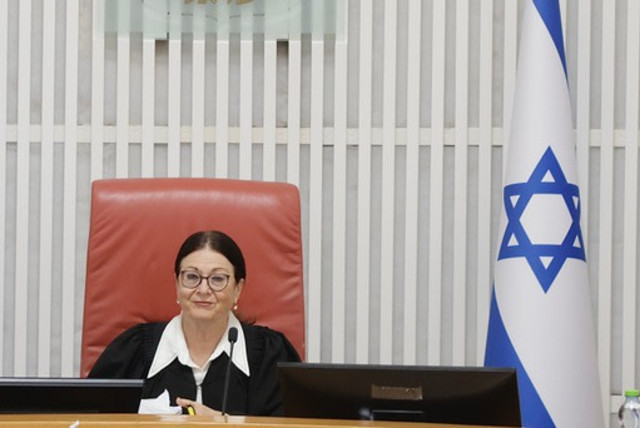Elron asks to become Supreme Court president instead of Amit

The Supreme Court president is appointed by the Judicial Selection Committee but is typically done by seniority.
Justice Yosef Elron proposed his candidacy for the presidency of the Israeli Supreme Court instead of the heir apparent Justice Yitzhak Amit in a Wednesday letter to Court President Esther Hayut and Justice Minister Yariv Levin.
Elron asked to be included in the list of candidates and said that his application was not dependent on the composition of the Judicial Selection Committee.
The panel is currently not convening at the behest of Levin, who wishes to reform the body – though a High Court of Justice hearing is set for September 7 on the matter.
Who is supposed to be the Supreme Court president?
The Supreme Court president is appointed by the Judicial Selection Committee but is typically done by seniority. Hayut retires when she turns 70 on October 16 and Justice Anat Baron will retire on October 12.
The next most senior judge, Justice Uzi Vogelman, is expected to decline the appointment since he is already near retirement age. By seniority, Amit was expected to become the next court president.
Former Meretz leader and Zulat Institute for Equality and Human Rights president Zehava Gal-On said Elron was taking advantage of the judicial reform to jump ahead of waiting justices, and that his move sent a message to other judges that to get promotions one needed to identify with the government's agenda.
"Elron's step is unprecedented and indicates the permeation of the coup d'etat in the judicial system," Gal-On commented. "Although the seniority system is not enshrined in law, in order to reduce the politicization of the judicial system, it has been customary since the establishment of the state that the oldest judge be automatically appointed to the position of president."
Due to Elron's candidacy, Hayut decided on Wednesday that he will not preside over the hearing on petitions against Levin's unwillingness to convene the Judicial Selection Committee. Other justices on the panel were also excluded from sitting on the bench for the case, likely to remove any doubt of bias or conflict of interest.
Jerusalem Post Store
`; document.getElementById("linkPremium").innerHTML = cont; var divWithLink = document.getElementById("premium-link"); if (divWithLink !== null && divWithLink !== 'undefined') { divWithLink.style.border = "solid 1px #cb0f3e"; divWithLink.style.textAlign = "center"; divWithLink.style.marginBottom = "15px"; divWithLink.style.marginTop = "15px"; divWithLink.style.width = "100%"; divWithLink.style.backgroundColor = "#122952"; divWithLink.style.color = "#ffffff"; divWithLink.style.lineHeight = "1.5"; } } (function (v, i) { });

